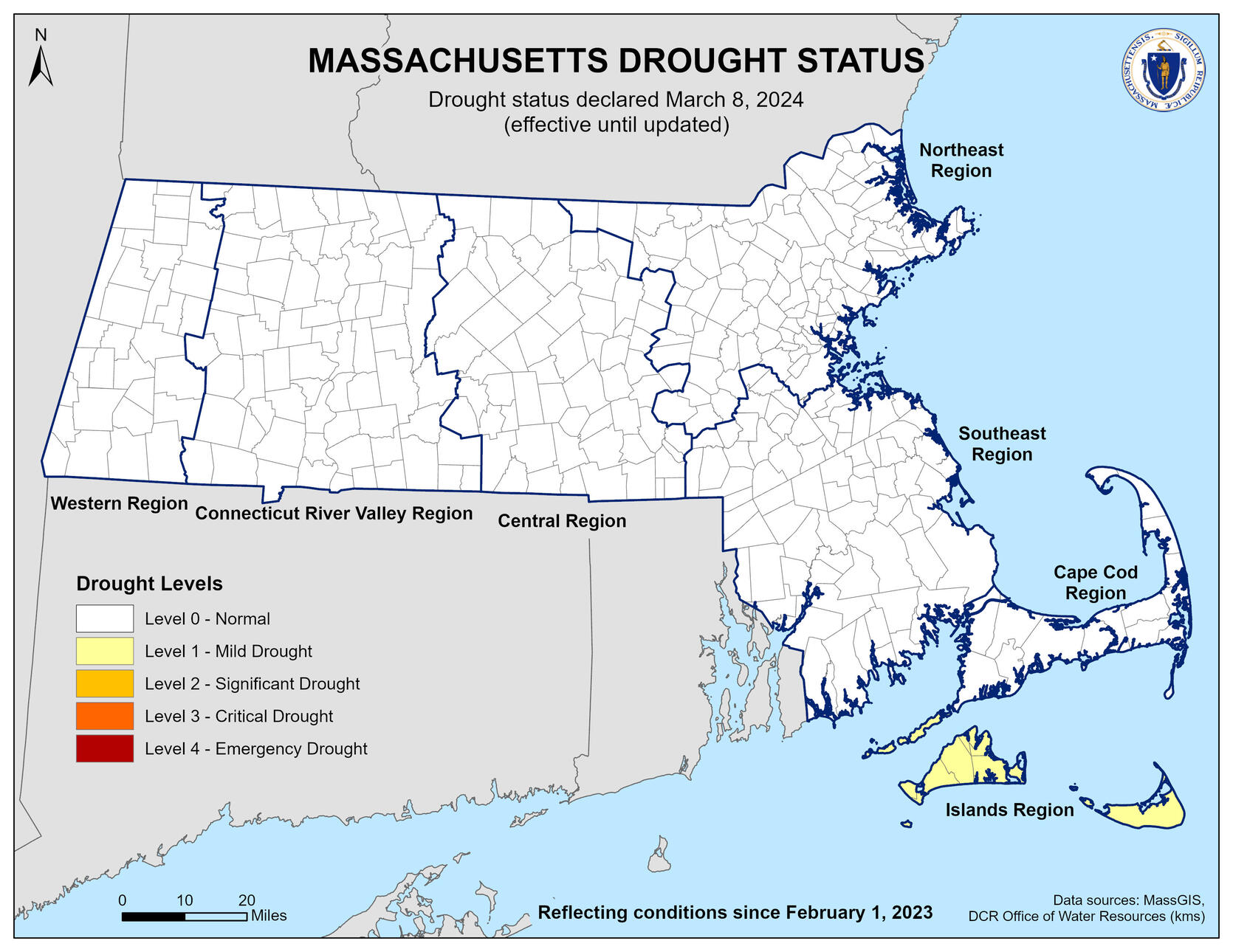- Executive Office of Energy and Environmental Affairs
- Drought Management Task Force
Media Contact
Danielle Burney, Deputy Communications Director

BOSTON — Following three months of near-normal rainfall, Energy and Environmental Affairs (EEA) Secretary Rebecca Tepper declared the Islands Region will be downgraded from a Level 2- Significant Drought to a Level 1-Mild Drought. All other regions of the state remain in Level 0-Normal Conditions. As outlined in the Massachusetts Drought Management Plan, a Level 1-Mild Drought warrants detailed monitoring of drought conditions, close coordination among state and federal agencies, and technical outreach and assistance to the affected municipalities.
“Seeing conditions improve on Martha’s Vineyard and Nantucket is encouraging. We need to continue practicing indoor water conservation methods to help lift the Islands Region out of this drought,” said Secretary Tepper. “Hotter summers mean slower recovery for groundwater levels. Drought resiliency is a priority for the Healey-Driscoll Administration, and we are working to build those resources for municipalities.”
Today’s declaration is the result of recommendations made by the state’s Drought Management Task Force, which is composed of state and federal officials, and other entities. During Friday’s meeting, the DMTF noted there were currently no water supply concerns; however, the Massachusetts Department of Environmental Protection (MassDEP) will continue to provide technical assistance to communities in managing their water systems, including assistance on the use of emergency connections and water supplies. The declaration will remain in effect until water levels return to normal conditions. Below are recommendations for communities and individuals living and working within a Level 1 – Mild Drought region.
For Region in Level 1 - Mild Drought
Residents and Businesses:
-
Minimize overall water use;
-
Fix indoor leaks, such as from toilets, faucets, and showers, which result in more than 60 percent of indoor use;
-
For larger buildings and businesses, conduct water audits to identify areas of leaks and potential water conservation opportunities;
Communities:
-
Establish a year-round water conservation program that includes public education and communication, taking advantage of the state’s library of outreach materials;
-
Provide timely drought and water conservation information to local residents and businesses;
-
Check emergency inter-connections for water supply; and
-
Develop a local drought management plan (learn more here).
The Drought Management Task Force will meet again on Tuesday, April 9, 2024, at 10:00 am. State agencies will continue to closely monitor and assess conditions across the state, coordinate any needed dissemination of information to the public, and help state, federal, and local agencies prepare additional responses that may be needed in the future. For further information on water conservation and what residents can do, visit the Executive Office of Energy and Environmental Affairs’ drought and water conservation pages.
###